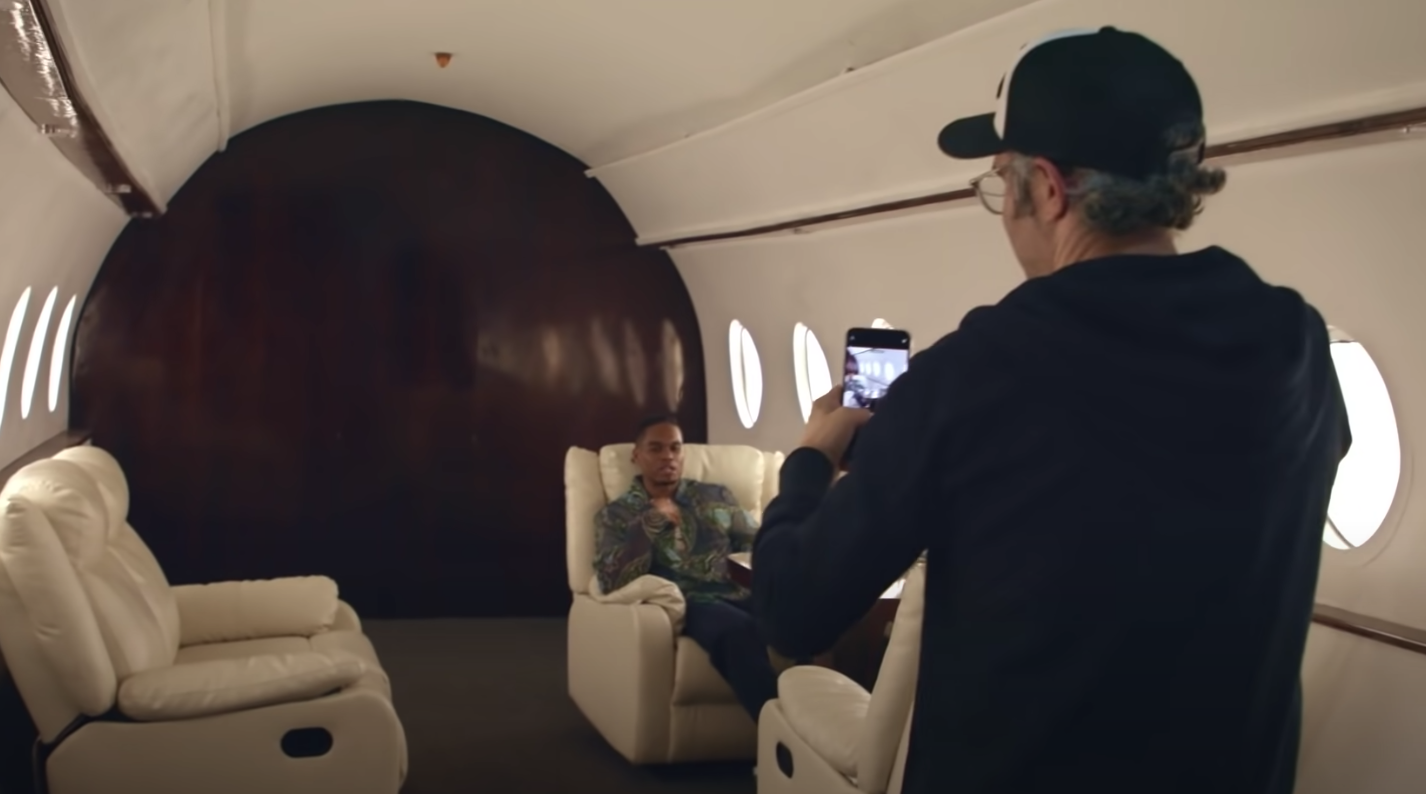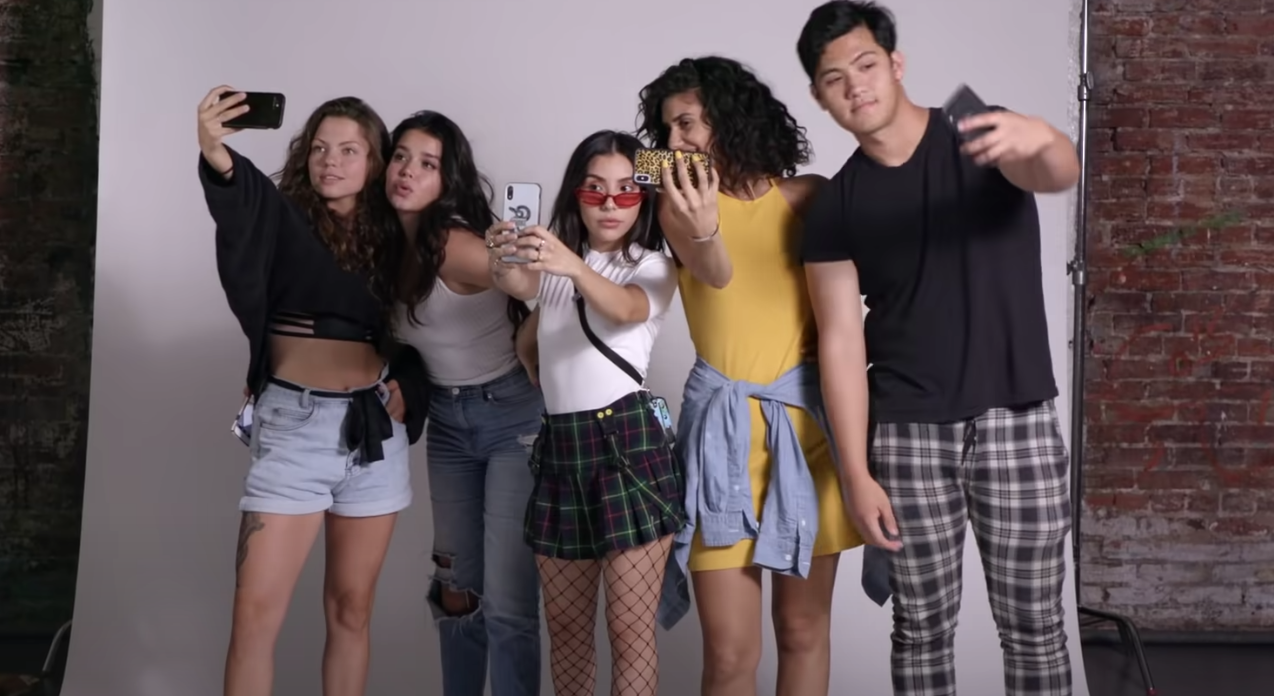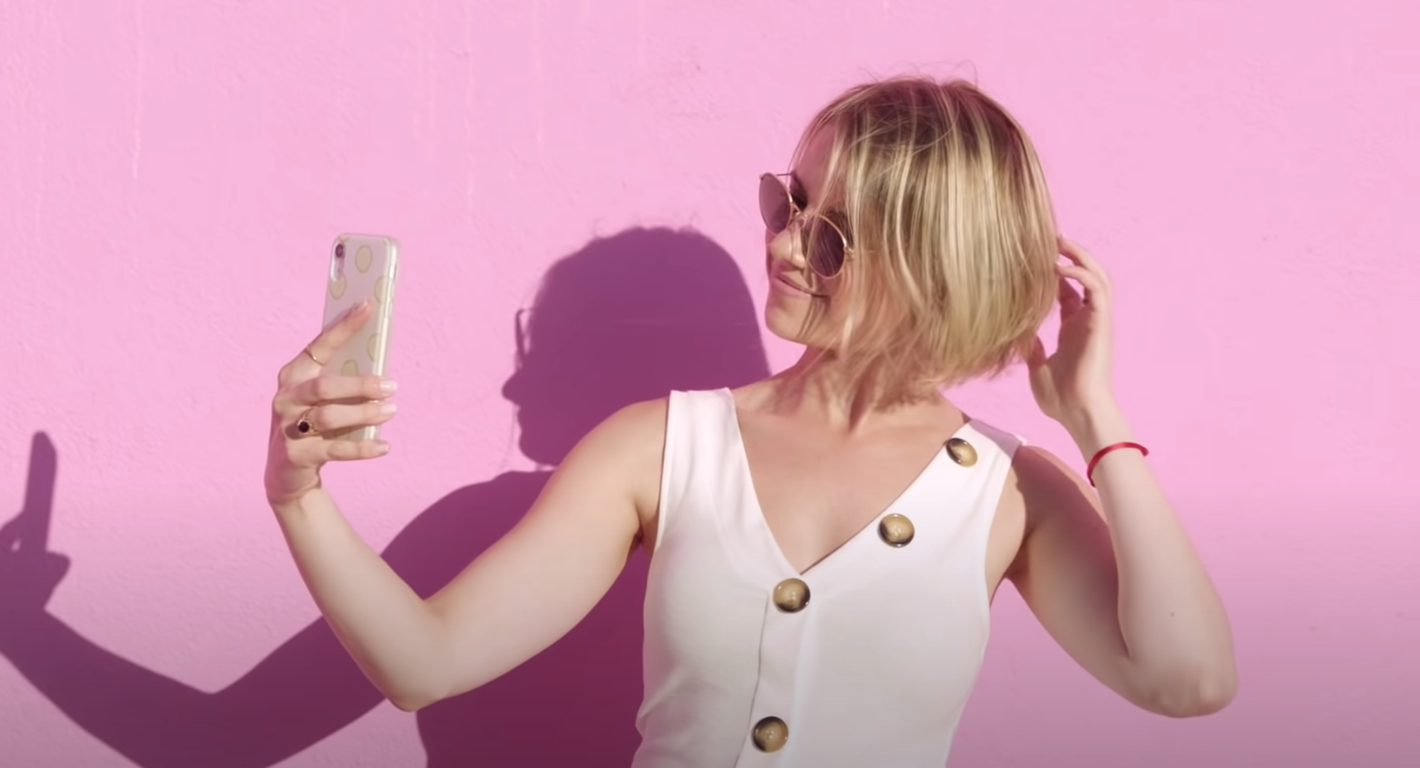Instagram. TikTok. YouTube. These are platforms now that today’s teens and youth spend hours a day on, myself included as a Millennial- Gen-Z cusp young adult, age 22. And whether we like it or not, these sites we spend so much time on are influencing the way we see ourselves and the world around us.
The HBOMax documentary “Fake Famous,” released on the streaming site in February, discusses the specific Instagram phenomenon of influencers and social media “fame.” These people, many of whom have no particular talent or skill, run personal accounts, posting selfies, pics of their daily outfits, travel photos, and anything else that furthers their online persona, gaining hundreds of thousands of followers, some even reaching into the millions. At that point, they are considered “Instagram famous” and begin to receive money, free items, or trips, from companies in exchange for posts about that company on their profile. This creates an image of the perfect life, of being beautiful and loved and lavished with gifts of all sorts without having to work a traditional job.
The doc begins with a shocking statistic, that the most popular answer to the question “What do you want to be when you grow up?” when asked to children is “influencer.” And looking at it on the surface, being an influencer does seem like a swanky, easy job. However, this documentary aims to dig into the darker side of things by conducting a social experiment, making 3 regular people into famous Instagram influencers using purchased bots and faking a luxurious lifestyle with photo manipulation and staging.
The director manages to get their follower counts up quickly, faking user engagement to make it seem authentic, and buying more and more bots to increase the numbers gradually over a few months. This apparent “fame,” of course, has its pros and cons. One pro being plenty of free things for participant Dominique, and one con being the inherent dishonesty of it all causing immense guilt and resentment for the other participants Wylie and Chris.

Director Bilton and participant Chris rent a private jet stage that is frequently rented by influencer for photoshoots
The experiment though comes to end with the beginning of the COVID-19 pandemic. Despite millions of people losing their jobs and being unable to feed themselves or their children or meet rent, the Instagram influencers kept up their act as if nothing had changed, their lives continuing to be lavish as usual as companies continue to expect them to advertise their products to their followers. To be frank, they are entirely insensitive to the deaths and misfortunes of others.
That point, about the utter distance from reality, and humanity, that these people are operating from, is sent home. However, many other important points about the deeper implications of this influencer culture are brushed over or completely omitted.
The director, Nick Bilton, is aiming to critique this culture but does not fully integrate himself into the community to whom it is making the greatest impact, Gen-Z youth. Watching it as a Gen-Z individual, I felt that the gaps in his vision prevented the documentary from truly criticizing or condemning the practice of faking an idealized persona on a massive platform frequented by young people. By watching the success of Dominique, it almost seems to be convincing young people that buying yourself a fake following and pretending to be someone you’re not will pay off in the end with luxury goods and vacations.
However, there are greater implications to consider. By becoming an influencer, you are knowingly encouraging a consumerist, materialist culture that upholds impossible beauty standards and superiority of the wealthy and upper class. All of this is being preached to a highly susceptible audience of young people who unconsciously absorb the ideals that they are seeing presented on screen and leads them to define themselves primarily by their consumer habits and appearance. For example, a teen may buy certain brands of makeup, many of which are not affordable or accessible, to make certain facial features appear desirable according to what is seen online and to show that they have enough money to buy that exact makeup, thereby giving them clout with peers. Or they may buy a particular name-brand item, like AirPods, instead of regular, accessibly priced headphones, because it is considered more on-trend. Or on the other hand, they may be unable to afford to do either and then see themself as inferior to their peers because of it. Over many hours and many days, this can turn into anxiety, depression, self-harm, and a struggle for a sense of self. The film touches on these negative side effects for those in the study, but does not go into more specifics about what this points to for everyone else. As Bilton says in this film, “The entire concept of influencing is to make you feel worse,” and spend a lot of money in the process.
The fact that so many youth of today want to be influencers when they grow up, I think, points to a greater problem of generational uncertainty about the future. This is something I myself am feeling, and am seeing frequently amongst my peers. We are growing up during particularly rough years, now more than ever, where we are constantly hearing about the rising costs of living, stagnated wages, rapidly rising tuition and student debt, and widespread unemployment. The “American Dream” is dead, certainly, for this generation, as it is frequently said that millennials will be the first generation to be worse off than their parents. In many ways, it seems as if we are doomed to failure, no matter what route we take. Turning to alternative options like becoming a Youtube or Instagram star seem like new, fun ways of making a living for young people who have seen it work for others before them. This is a way to work around the education system and the difficult job market, being your own boss and creating your own living. We have yet to see whether this sort of job path will have any lasting power, but at this moment in time, the wide appeal of social media fame makes a lot of sense considering the difficulties that we are growing up with.

Influencer culture isn’t going anywhere any time soon, and in fact seems to have rocketed up with the rise of TikTok over the last year and a half. This documentary provides a peek behind the curtain, but would have benefitted from a bit of a deeper dig. I’d still recommend it, especially for young people, to see just how false much of what you see online really is. If you find yourself frequently envying the lifestyles of these influencers, this doc does the important job of breaking away the illusion of it being so easy breezy and reminds us that social media is, in the end, a performance.
About the Author
Hi, I’m Leilani! I am a Long Beach, CA native who grew up with a passion for art and writing and learning more about the world. I’ve spent years doing community service, working on my craft, and now am wandering in search of my next life adventure.

